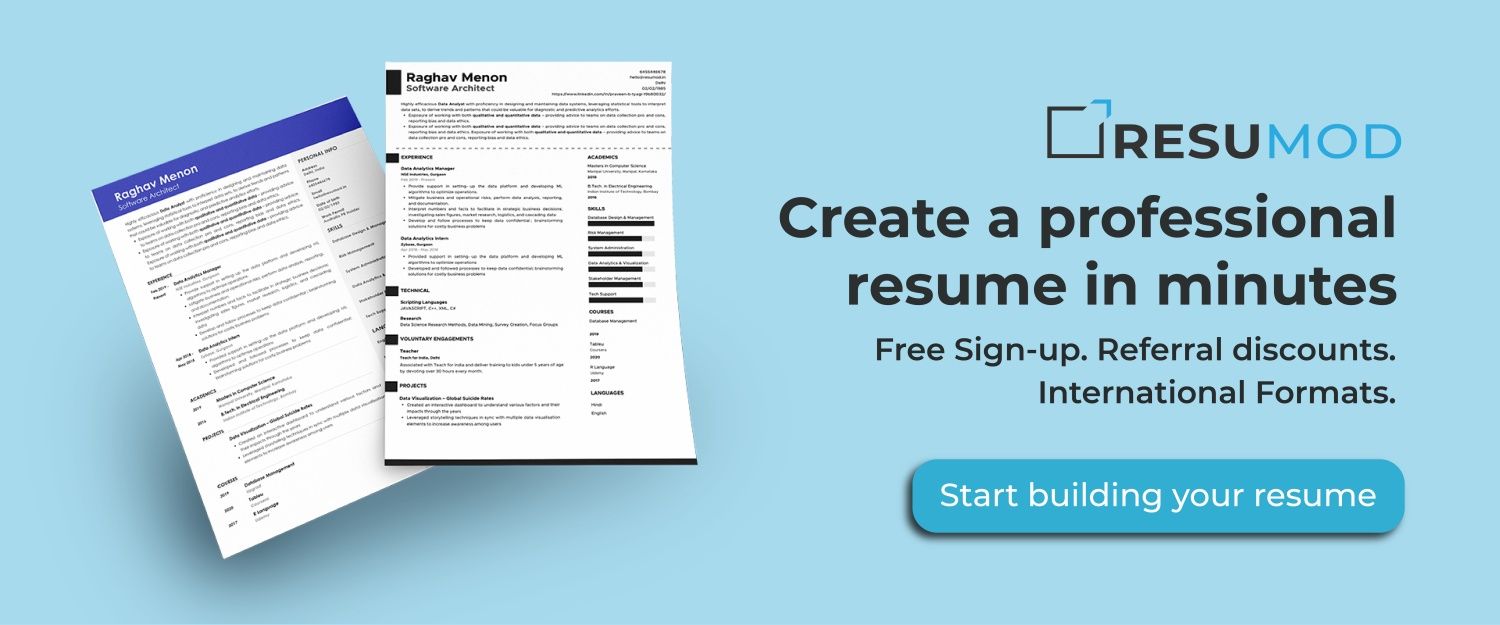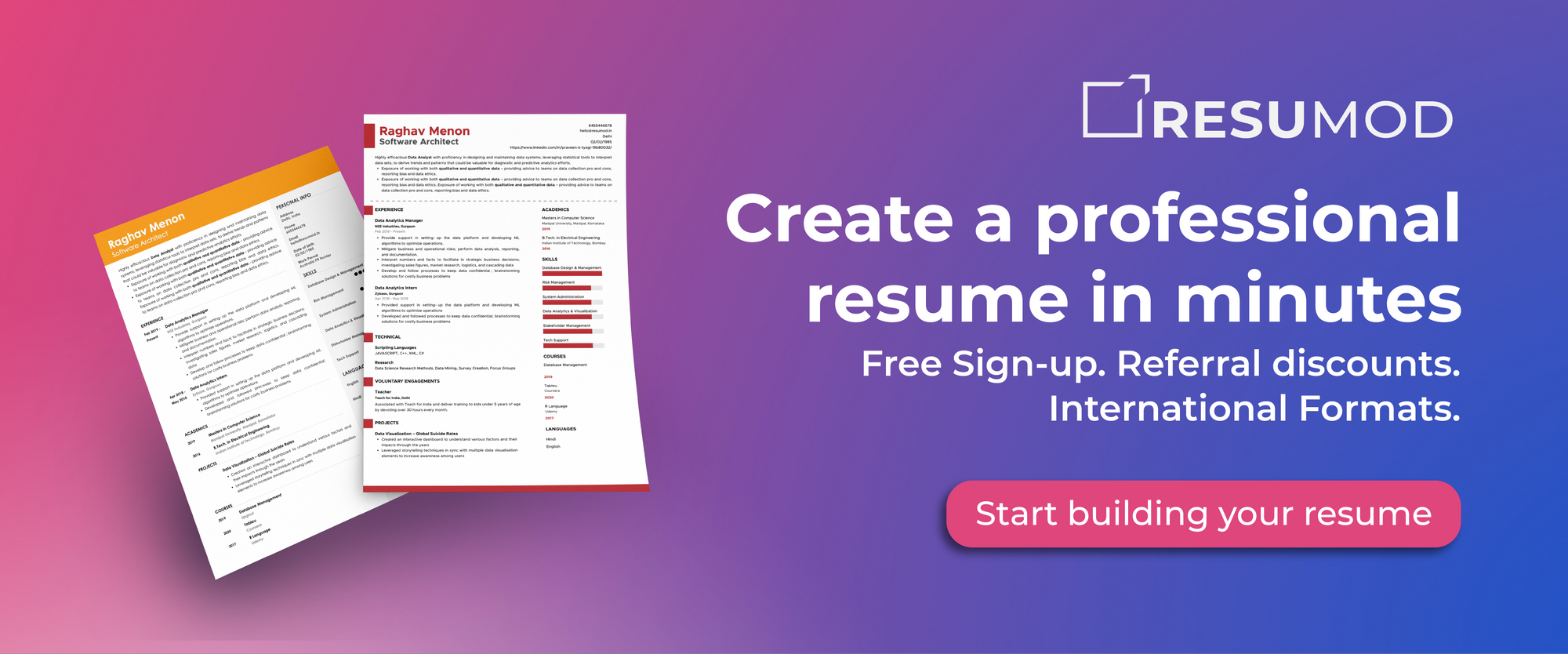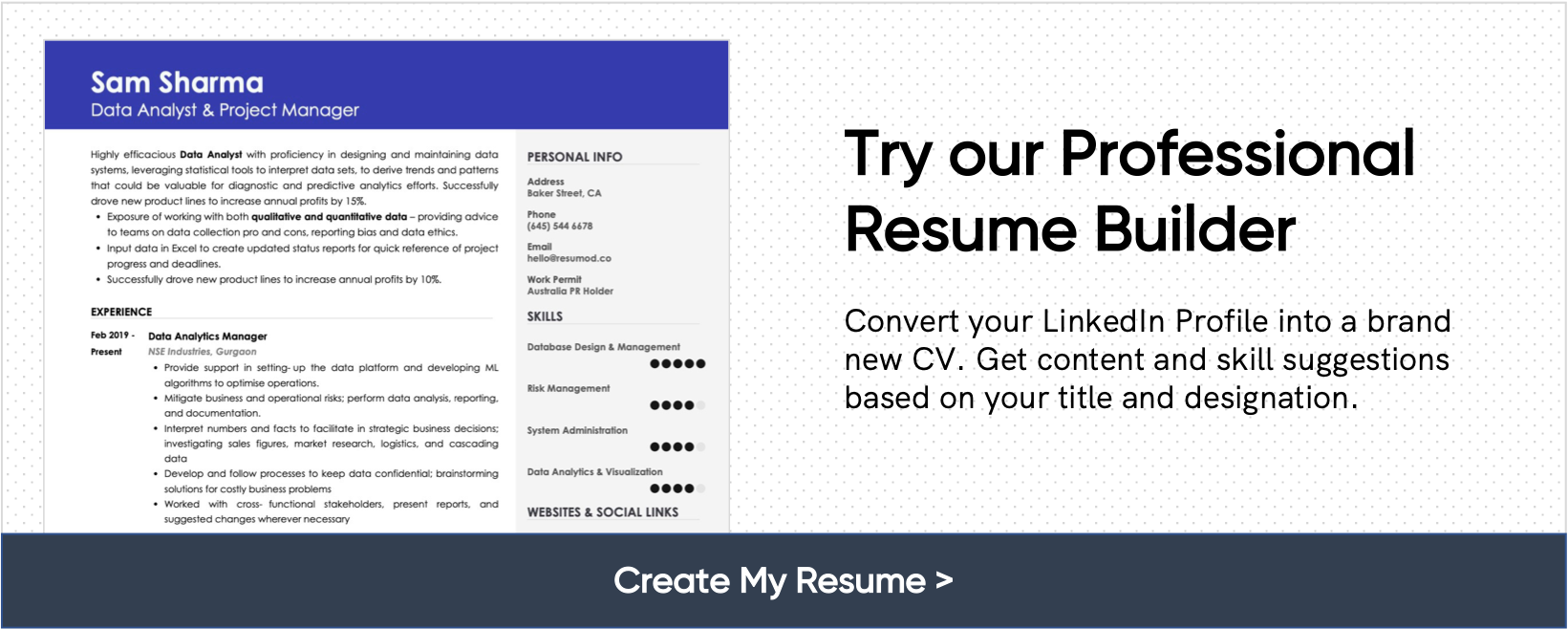How to Become a Lifestyle Coach: A Complete Guide
In recent years, the demand for lifestyle coaches has soared as more people recognize the importance of wellness, balance, and personal growth.
Imagine this: a young professional feeling burnt out, a mother juggling multiple roles with no time for herself, or a college graduate struggling to find balance amidst the chaos of career building. Enter the lifestyle coach - a guide who empowers individuals to align their personal and professional lives for greater fulfilment.
In recent years, the demand for lifestyle coaches has soared as more people recognize the importance of wellness, balance, and personal growth. With social media amplifying the need for personal transformation and global conversations around mental health and self-improvement, lifestyle coaching has emerged as a meaningful and lucrative career choice. If you’ve ever wondered how to become a lifestyle coach, this comprehensive guide will walk you through every aspect of the journey.
This blogpost includes:
- What does a lifestyle coach do?
- How to become a lifestyle coach?
- Skills for a lifestyle coach
- What do lifestyle coach qualifications mean?
- Importance of lifestyle coaches in different industries
- Who can become a lifestyle coach?
- Interview questions for a lifestyle coach
What Does a Lifestyle Coach Do?
A lifestyle coach is a professional who helps individuals achieve personal and professional goals by improving various aspects of their lives. This can include:
- Health and Wellness: Guiding clients to adopt healthier eating, fitness, and mental well-being habits.
- Work-Life Balance: Helping clients manage time effectively and reduce stress.
- Personal Development: Assisting clients in setting and achieving meaningful goals.
- Relationship Building: Providing tools to improve communication, connection, and understanding in personal and professional relationships.
Unlike a therapist, who delves into past traumas, or a consultant, who provides solutions, a lifestyle coach works collaboratively with clients to create actionable strategies. The focus is on empowerment and accountability, enabling clients to take charge of their lives.
Lifestyle coaching also extends beyond personal improvement—it often intersects with business, education, fitness, and wellness industries, making it a versatile profession.
How to Become a Lifestyle Coach?
If this career resonates with you, here’s a step-by-step guide to becoming a lifestyle coach.
- Understand Your Niche: Lifestyle coaching is a broad field, so it’s important to specialize. Whether you’re passionate about fitness, career development, emotional wellness, or relationship guidance, defining your niche will help you stand out and connect with the right audience.
- Get Relevant Training: While formal education is not mandatory, certifications from recognized institutions can enhance your credibility. Consider enrolling in programs offered by the International Coach Federation (ICF) or the Certified Life Coach Institute. These certifications equip you with coaching frameworks, ethical guidelines, and hands-on experience.
- Build a Personal Brand: In today’s digital world, having a strong online presence is crucial. Create a professional website, share valuable content through blogs or videos, and use social media to showcase your expertise. A personal brand reflects your authenticity and attracts potential clients.
- Start Practicing: Begin your coaching journey by offering free or discounted sessions to friends, family, or acquaintances. This will help you gain experience, refine your techniques, and collect testimonials that build trust with future clients.
- Set Up Your Business: Treat coaching as a business by establishing a clear structure. Decide on your coaching packages, pricing, and payment methods. Invest in marketing tools and software to manage client schedules and communication.
- Commit to Lifelong Learning: The coaching landscape is ever-evolving. Stay updated with new tools, techniques, and industry trends by attending workshops, webinars, and advanced certification courses.
By following these steps, you can transform your passion for helping others into a thriving career as a lifestyle coach.
Skills for a Lifestyle Coach
Being a lifestyle coach requires a combination of technical knowledge and soft skills. Here are the key attributes you need to develop:
- Active Listening: Listening attentively allows you to understand your client’s concerns, goals, and aspirations. It builds trust and shows that you value their perspective.
- Empathy: Empathy helps you connect with clients on a deeper level, creating a safe space where they feel understood and supported.
- Effective Communication: Being able to clearly articulate your thoughts, provide constructive feedback, and motivate clients is a critical skill.
- Problem-Solving: Clients often come to you with challenges they can’t navigate alone. Your ability to help them identify and overcome obstacles is essential.
- Adaptability: Every client is unique. Adapting your approach to suit different personalities and situations ensures effective coaching.
- Goal-Setting Techniques: Helping clients define clear, measurable goals and develop actionable plans is at the heart of coaching.
- Time Management: As a coach, managing your time and teaching clients how to optimize theirs are both critical.
Mastering these skills will not only make you a better coach but also set you apart in the competitive coaching industry.
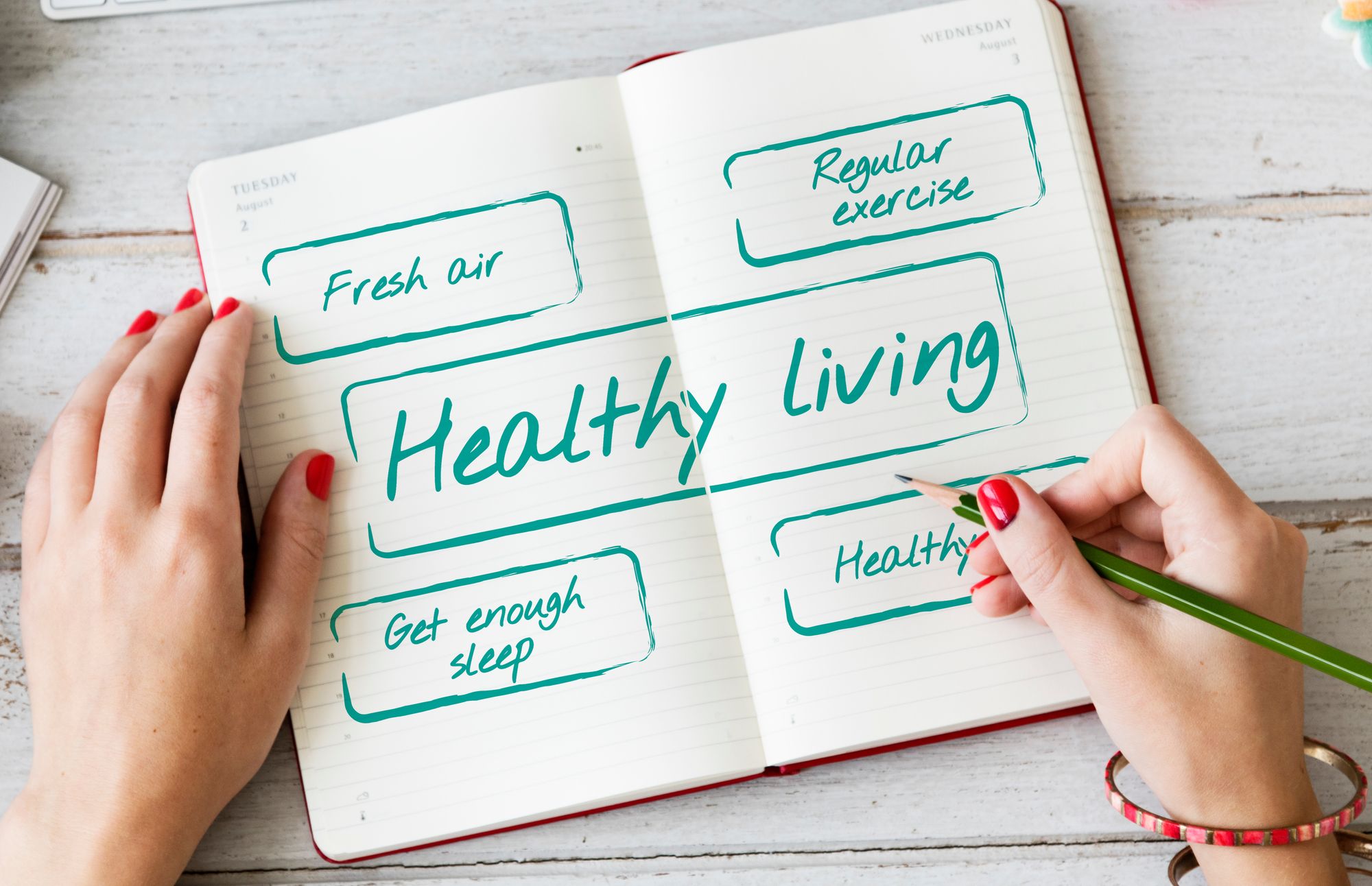
What Do Lifestyle Coach Qualifications Mean?
When we talk about qualifications for a lifestyle coach, we’re not just referring to formal education. A blend of certifications, experience, and personal attributes makes a well-rounded coach.
Certifications:
Programs like ICF, Neuro-Linguistic Programming (NLP), or Co-Active Coaching provide a solid foundation. These certifications cover coaching techniques, ethics, and practical applications.
Experience:
Hands-on experience is invaluable. The more clients you work with, the more refined your coaching methods become.
Soft Skills:
Attributes like empathy, patience, and communication are qualifications. They define how effectively you connect with clients.
Testimonials:
Client success stories and positive reviews serve as powerful endorsements of your capabilities. Qualifications establish credibility and reassure clients that they’re in capable hands.
Importance of Lifestyle Coaches in Different Industries
Lifestyle coaching isn’t limited to personal development - it has significant applications across various industries:
Corporate Sector
Companies hire lifestyle coaches to improve employee well-being, boost productivity, and enhance workplace morale. Coaches help employees manage stress, set career goals, and maintain work-life balance.
Healthcare
Lifestyle coaches collaborate with healthcare providers to encourage patients to adopt healthier habits, from diet and exercise to stress management.
Education
In schools and universities, lifestyle coaches support students with career guidance, stress management, and personal development.
Fitness and Wellness
Fitness trainers often partner with lifestyle coaches to address the mental and emotional aspects of well-being, creating a holistic approach to health.
Entrepreneurship
Start-ups and business owners benefit from lifestyle coaching to maintain balance and focus during high-pressure situations.
These diverse applications underscore the versatility and value of lifestyle coaching.
Who Can Become a Lifestyle Coach?
The beauty of lifestyle coaching is that it’s accessible to individuals from all walks of life. Here’s who can step into this rewarding career:
Professionals in Related Fields:
Counsellors, nutritionists, fitness trainers, HR professionals, and educators often transition into lifestyle coaching, leveraging their existing expertise.
Life Experience Enthusiasts:
People who’ve overcome significant personal challenges or achieved notable life milestones often feel inspired to help others navigate their own journeys.
Passionate Beginners:
Even those without prior experience can become successful lifestyle coaches with the right training and dedication.
Ultimately, the key to becoming a lifestyle coach lies in a genuine passion for helping others and a willingness to invest in personal and professional growth.
Interview Questions for a Lifestyle Coach
If you’re preparing for an interview or client consultation as a lifestyle coach, you’ll likely encounter questions that assess your approach, expertise, and personality. Here are some common ones:
What inspired you to become a lifestyle coach?
Share your personal journey, emphasizing how it aligns with your desire to help others.
How do you help clients achieve their goals?
Explain your process, such as identifying goals, creating action plans, and providing ongoing support.
What’s your strategy for handling difficult clients?
Highlight your patience, empathy, and ability to adapt your methods to suit different personalities.
Can you share a success story from your coaching experience?
Provide a specific example that demonstrates the tangible impact of your coaching.
How do you stay updated on coaching trends?
Mention workshops, certifications, or self-study modes you use to stay relevant.
What tools do you use during your coaching sessions?
Discuss any techniques or frameworks, like SMART goal-setting, journaling, or visualization exercises, that you incorporate into your practice.
Top Rated Lifestyle Coach Resumes on Resumod
Resume of Business Coach
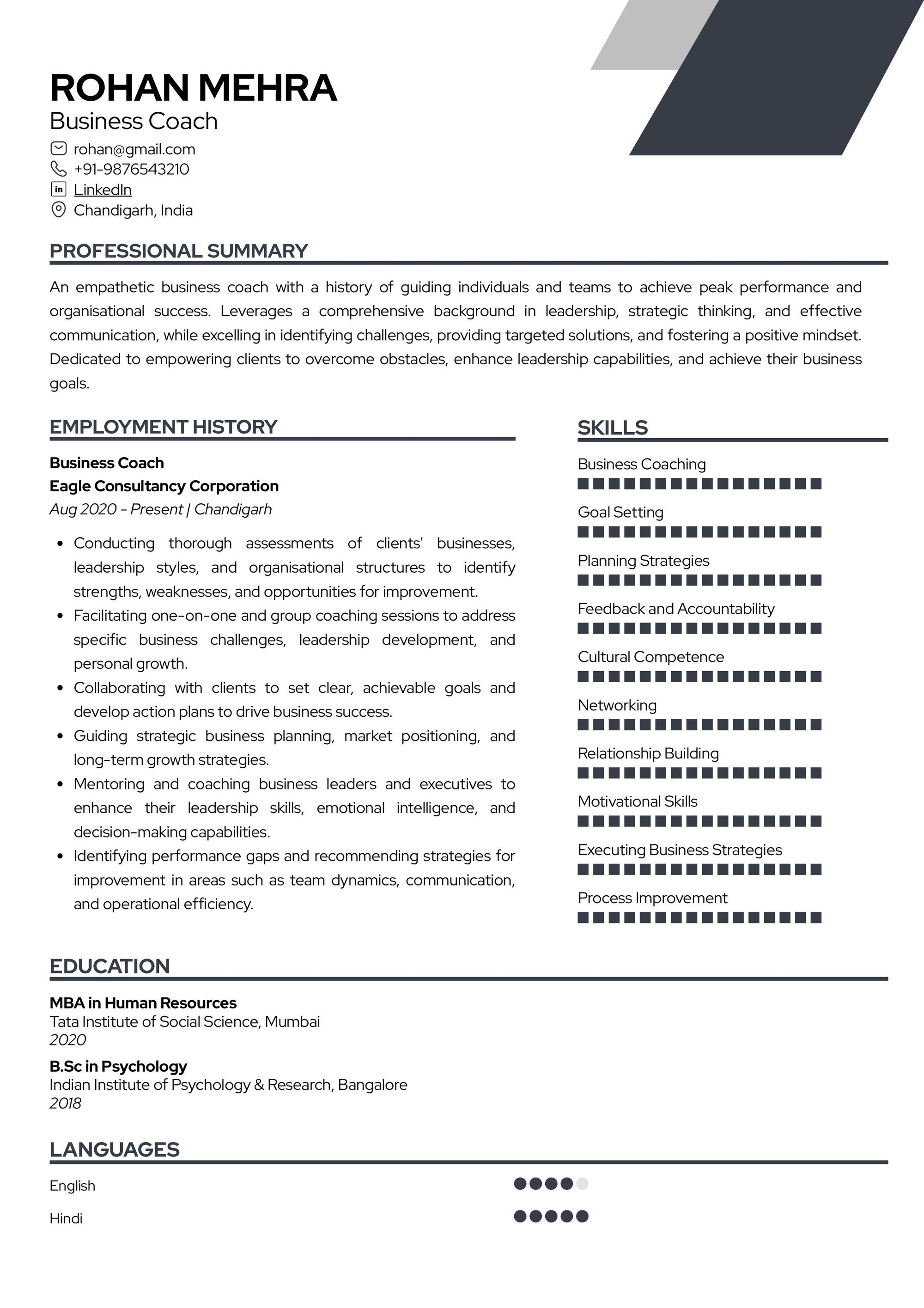
Check the full resume of business coach in text format here.
Resume of Executive Leadership Coach
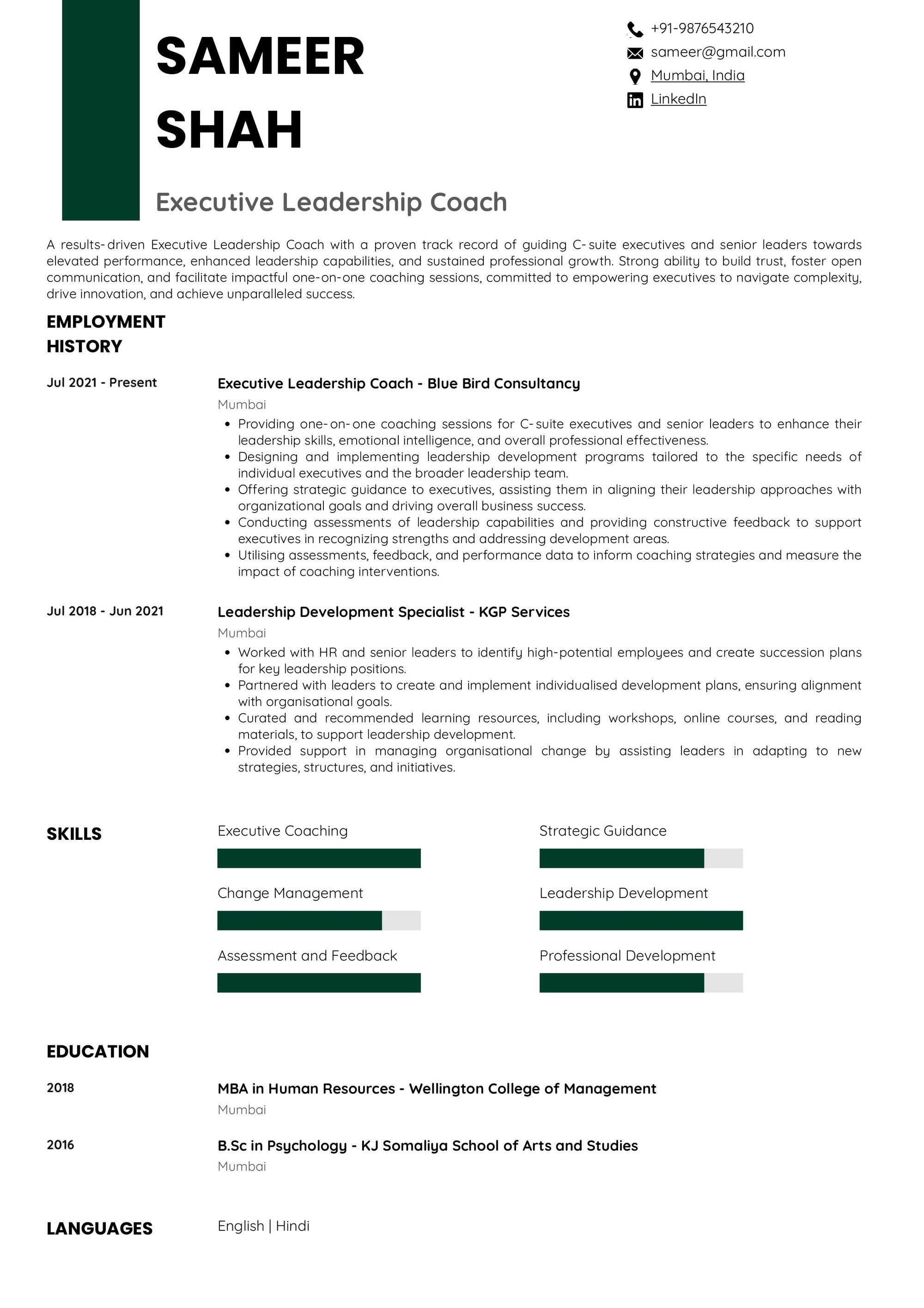
Check the full resume of executive leadership coach in text format here.
Resume of Corporate Wellness Coordinator
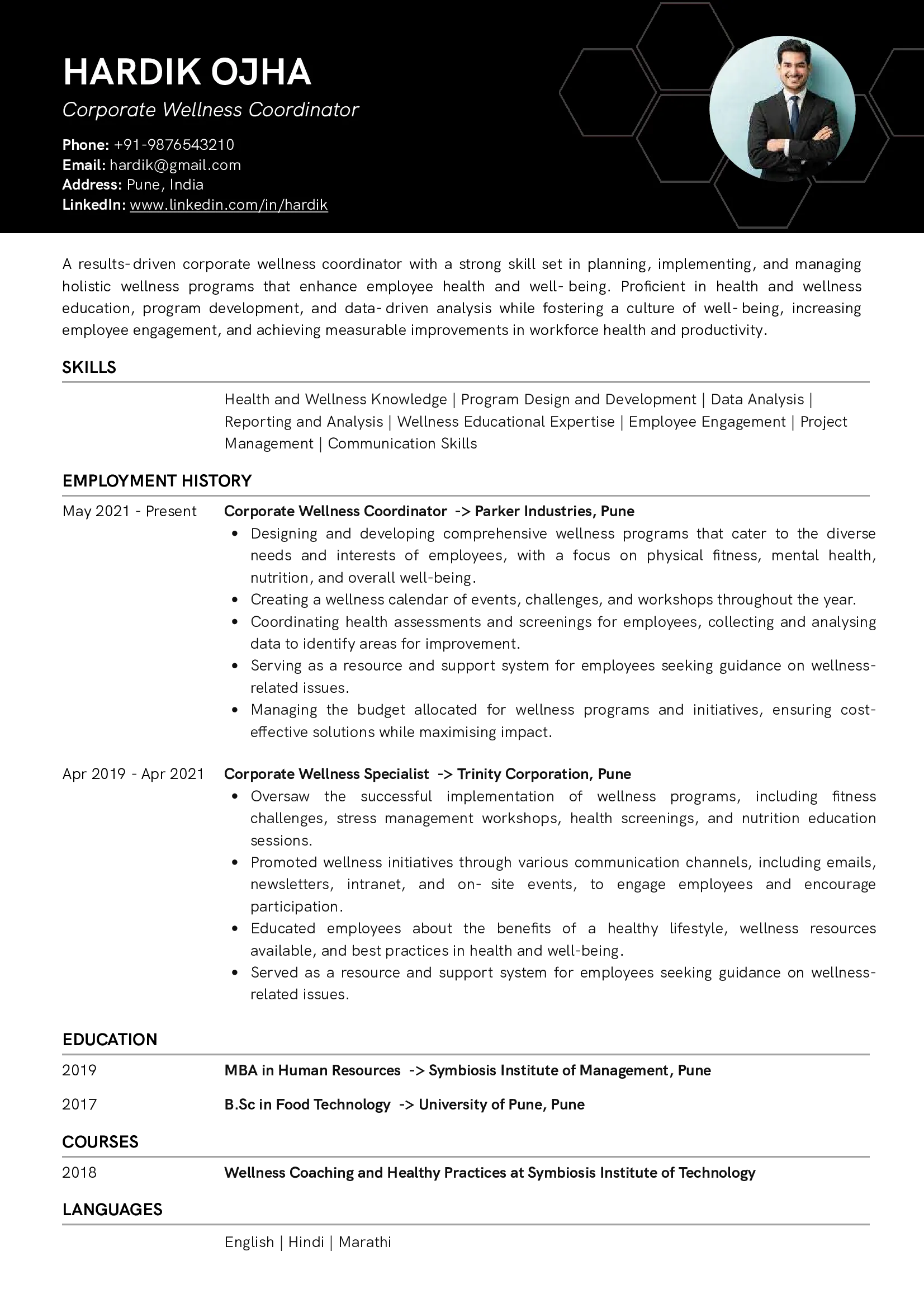
Check the full resume of corporate wellness coordinator in text format here.
Resume of Nutrition Consultant
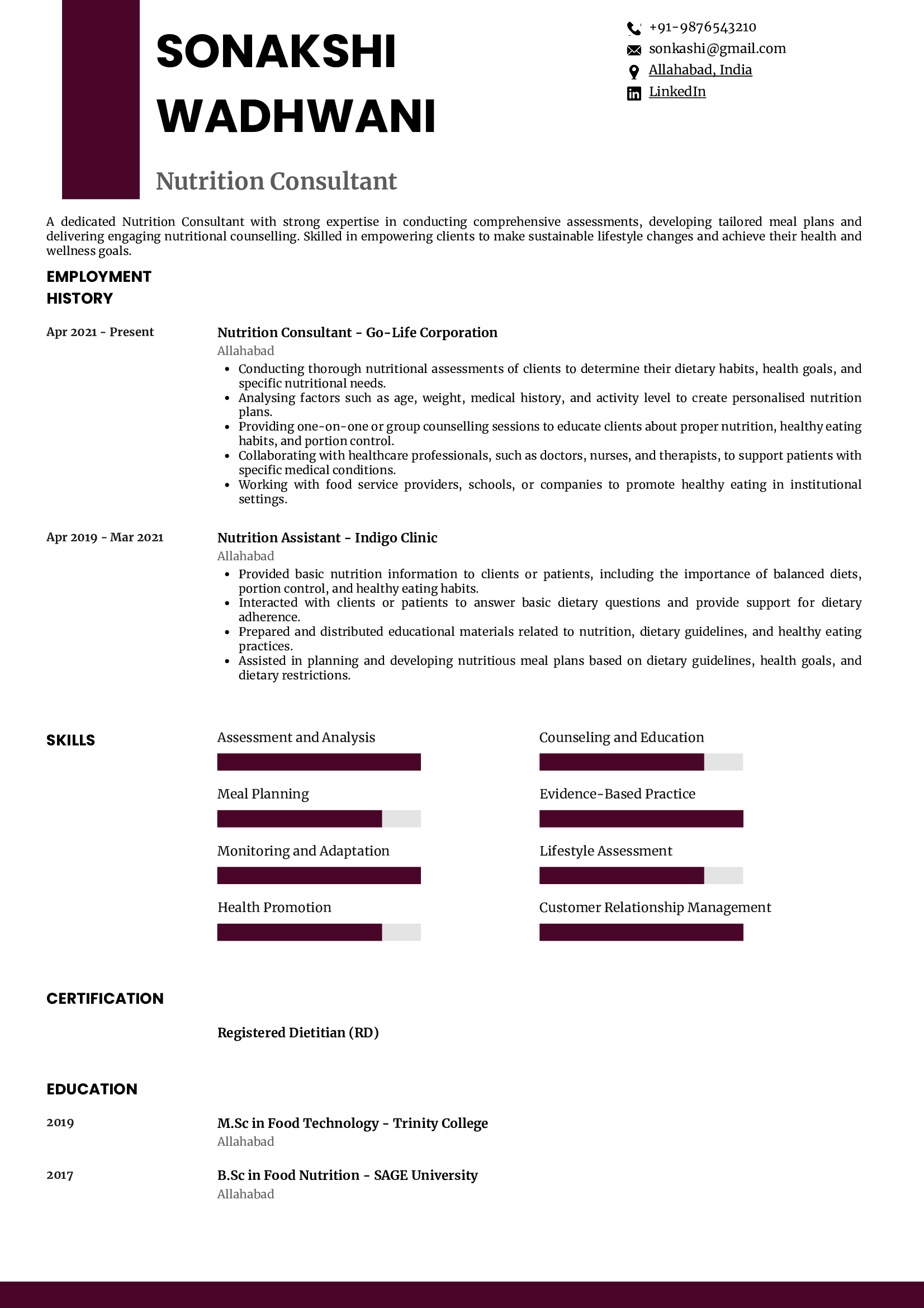
Check the full resume of nutrition consultant in text format here.
Resume of Nutrition Educator
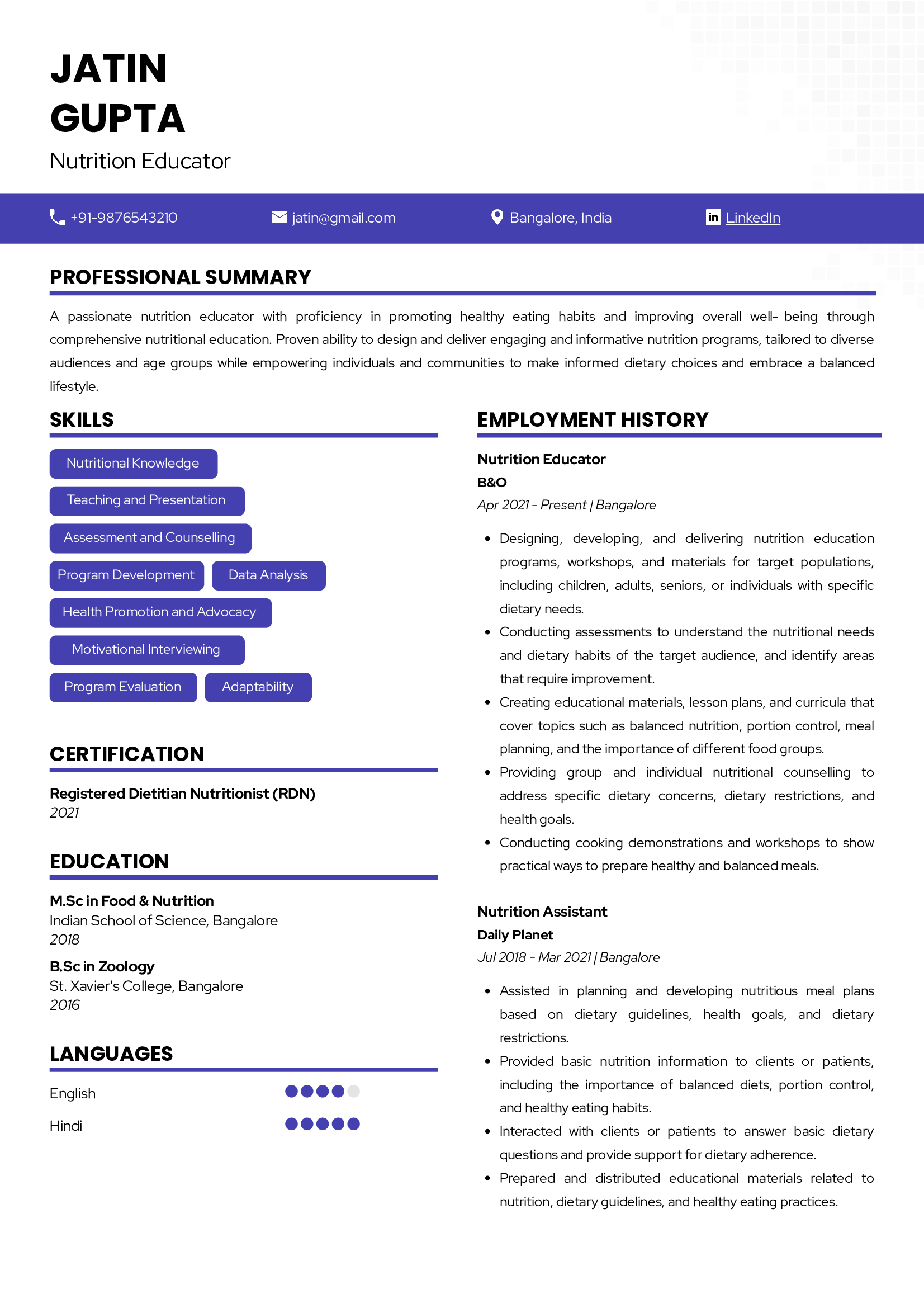
Check the full resume of nutrition educator in text format here.
Final Thoughts
Becoming a lifestyle coach is not just a career - it’s a calling to inspire and empower others. As the world continues to prioritize wellness and personal growth, the role of a lifestyle coach becomes increasingly significant.
If you’re passionate about helping others achieve their best selves, this career offers a fulfilling path with endless opportunities. By following the steps outlined in this guide, you can turn your passion into a profession that transforms lives - one client at a time.
Start today, invest in your growth, and embrace the rewarding journey of becoming a lifestyle coach. The world needs more guides like you!

